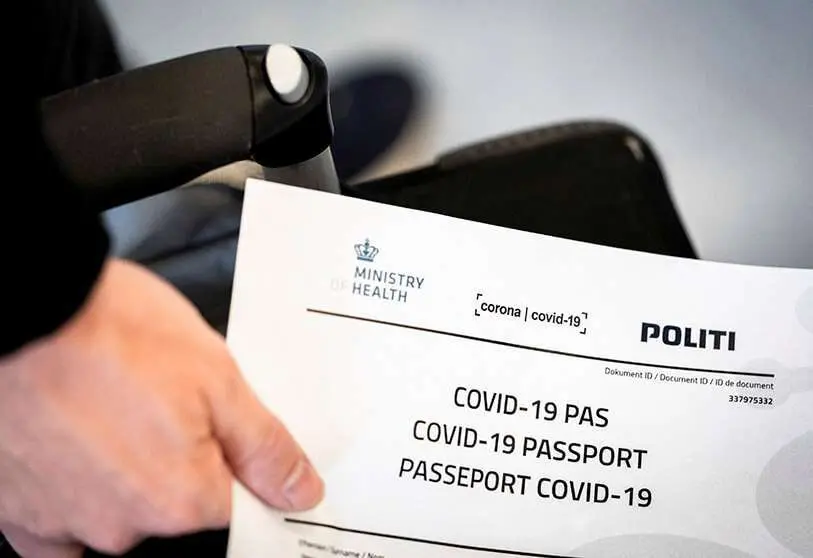Passport to discrimination?

Many companies are developing their own apps mainly aimed at opening safe travel corridors starting with transport, hotels, hospitality and leisure.
The International Air Transport Association (IATA) is designing a free app called Travel Pass; each airline will be free to subscribe or not and to require its customers to be vaccinated or carry a negative PCR.
British Airways already uses its Health Passport and other European airlines will most likely follow suit to create a safe and trusted environment for travellers.
A few days ago, I asked Jarbas Barbosa, deputy director of the Pan American Health Organisation (PAHO), for his opinion on the anti-COVID health passport. In his response, he was categorical in stating that "great care must be taken with such an objective", while at the same time he expressed concern about the ethical aspects in the case of people who need to work and do not have a health card because they have not yet been vaccinated against SARS-CoV-2.
The governments of several countries are organising their own schemes, and they are not even doing so in consensus with the population on such a sensitive issue that could lead to discrimination and exclusion; according to Barbosa, to date, the yellow fever vaccine is the only one required by international agreement.
Adolfo Favieres, ambassador for Spain and Latin America of the World Travel and Tourism Council (WTTC), does not look favourably on the health passport issue either.
I also had the opportunity to talk to him about the issue and he commented that a passport as such is an exclusionary measure because people who are unvaccinated or uninfected will not be able to access the safe-conduct.
In this regard, Favieres pointed out that perhaps there is some distortion of an idea because what would be very convenient would be to establish a health pass; a health pass that includes all personal data including whether they have been vaccinated or if they have been sick with coronavirus; if the person has had serological or antigen tests or all the tests related to coronavirus.
"What has been happening here since the beginning of the pandemic, and we are still working on it a year later, is that we need solidarity but also an international mobility framework that is universally accepted; for example, each country has its own different restrictive measures and it is essential that there is an international mobility framework in this pandemic," explained the prominent Spanish businessman.
On 11 March it will be a year since the World Health Organisation (WHO) declared that SARS-CoV-2 had gone from being an epidemic to a full-blown pandemic, with an initial scope extending to more than forty countries, thousands of people infected and a transmission that was first said to be in droplets falling on surfaces; later, it was recognised that its main form of transmission is by air.
Several months after the global health tragedy, the situation of vaccine production and delivery once again brings into focus the same lack of solidarity and selfishness that has been present throughout this intense biological warfare that has already claimed the lives of two and a half million people in preliminary numbers.
With doses falling in dribs and drabs, under the hyperbole of demographics and the pace of pharmaceutical production, saving the stock market and lives at the same time will depend on a number of factors and on how the exit from the pandemic will be managed.
What would be unacceptable, in this process in which vaccines are becoming accessible to only a handful of countries, would be to create one or more instruments that could end up being used as instruments of discrimination, exclusion and even rejection.
The first countries to have the vaccine are beginning to outline a series of measures, both internal and external in the field of international tourism, which involve implementing a kind of health passport, green card, digital health card or health or vaccination certificate.
What is the purpose of such a passport? The basic intention is to allow a return to normality - within "abnormality" - for those who have already received the anti-COVID vaccine (either in the form of a single dose or the necessary two vials) or who have passed the infection.
Israel last week introduced a digital green card that can be downloaded via an app and accessed by those who are fully immunised.
The government of Prime Minister Benjamin Netanyahu believes that this will facilitate the decontamination of vaccinated people because they will be able to identify themselves in order to access gyms, leisure and cultural centres, go to shows, cinemas and other mass activities, and even stay in hotels in other regions of the country, which until now have been off-limits due to the coronavirus infection.
According to the Israeli health minister, no one will be "forced" to get vaccinated because people have the right not to do so, nor will there be sanctions; however, without the vaccine, access to certain public spaces will be difficult.
In fact, Yuli Edelstein, predicted that employers will want safe working environments with all employees vaccinated and those who are not vaccinated could be required to have a negative PCR every 48 hours.
In the UK, Boris Johnson has for days been throwing caution to the wind, predicting a return to normality that will allow "a summer without restrictions" especially for immunised people; there too, a health passport is being prepared that employers will be able to demand for their employees as a condition for keeping their jobs... let's hope they only leave it in the tourism line and do not transfer it to the workplace because it will be very harmful.

